Sustainable Tourism in Practice: Field Trips, Projects & Real-World Learning
Hello, it’s Salome, a second-year student on the Bachelor in International Sustainable Tourism (IST) program. I want to tell you about my first-year experience, projects, real-world learning and field trips we had, to show you that studying sustainable tourism is much more than lectures and textbooks, it’s about connecting theory to practice in real-world settings. We get the chance to explore destinations, meet professionals and work on hands-on projects that prepare us for the future of tourism.

Field Trips: Learning Outside the Classroom
Madrid has been our classroom in many ways. From analyzing value creation at the Prado Museum to observing social behavior at public locations of Madrid, we learned how tourism interacts with culture, mobility and inclusivity.
In the very first week of our studies, we had an amazing opportunity to visit the UN Tourism headquarters in Madrid. We learned about how the organization functions, its role in guiding global tourism policy and how it supports destinations worldwide in becoming more sustainable and inclusive. It was the perfect start to our journey – showing us that tourism isn’t just about travel, but also about international cooperation and real impact.
A highlight was visiting Envera, thanks to our teacher Antonio Linares Garcés we visited an NGO supporting people with disabilities, where we saw how tourism can drive social responsibility.
Our teacher of International Tourism in Transition, Héctor Coronel, Madrid’s Director of Tourism, organized a visit to the Centro de Turismo Plaza Mayor, gaining insight into how cities manage tourism growth while staying sustainable. And of course, afterwards we had a chance to explore Spanish culture by enjoying famous churros con chocolate at San Ginés.
On a bigger scale, attending FITUR, one of the world’s largest tourism fairs, opened our eyes to how destinations and companies present themselves globally with sustainability becoming a clear priority.
We had the pleasure of sharing dinners and drinks with our professors, moments that made learning more personal and memorable.
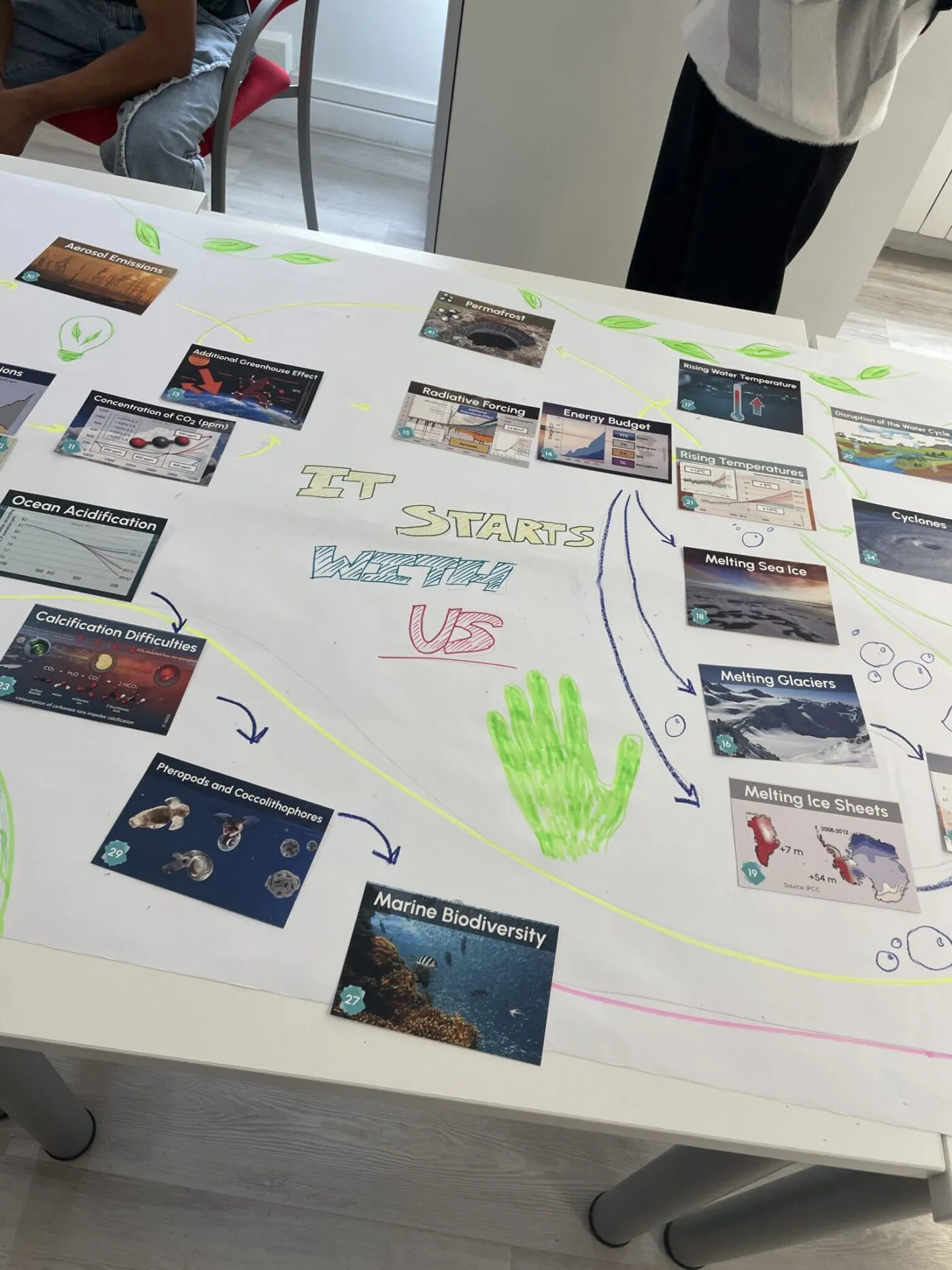
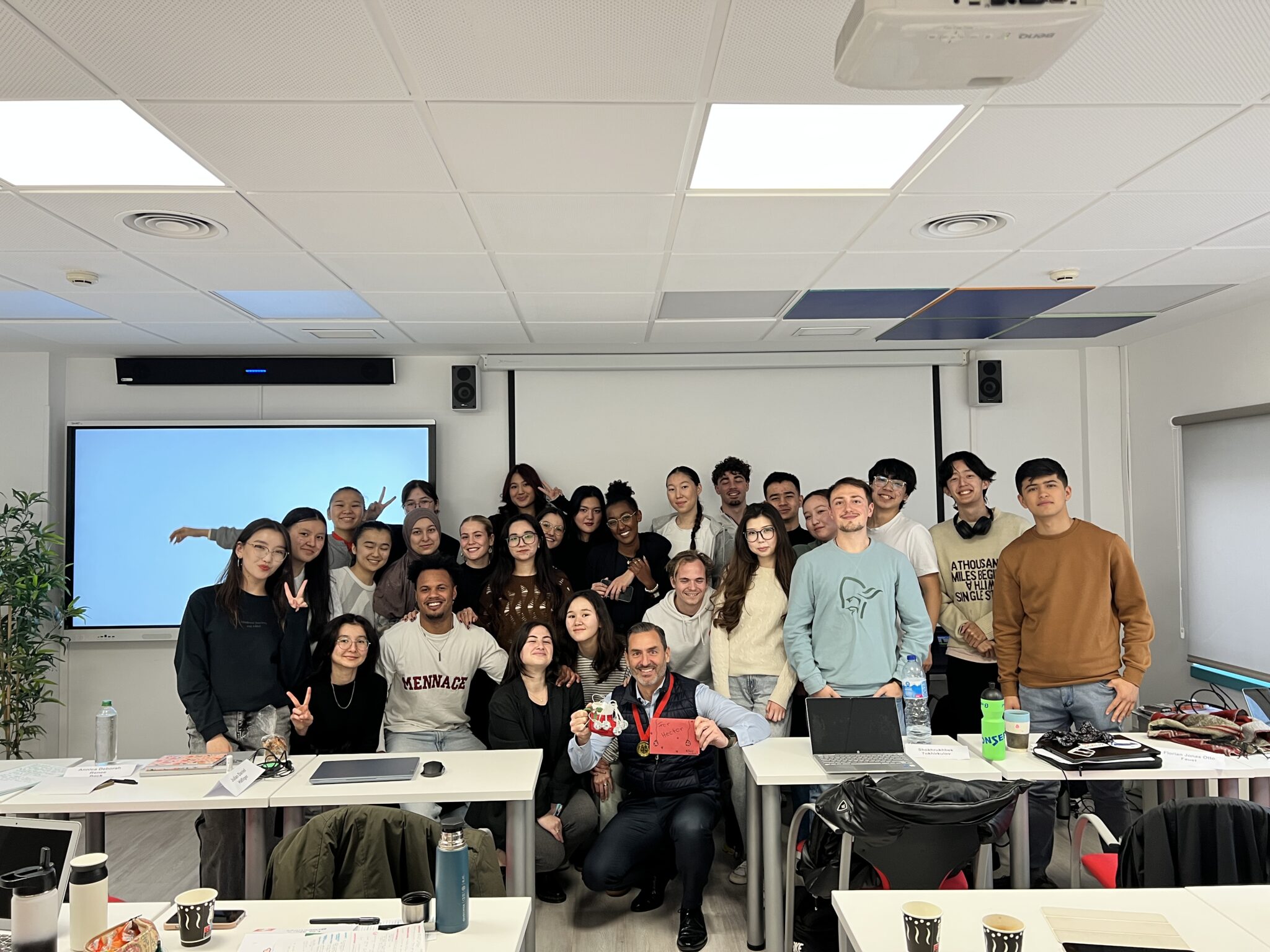
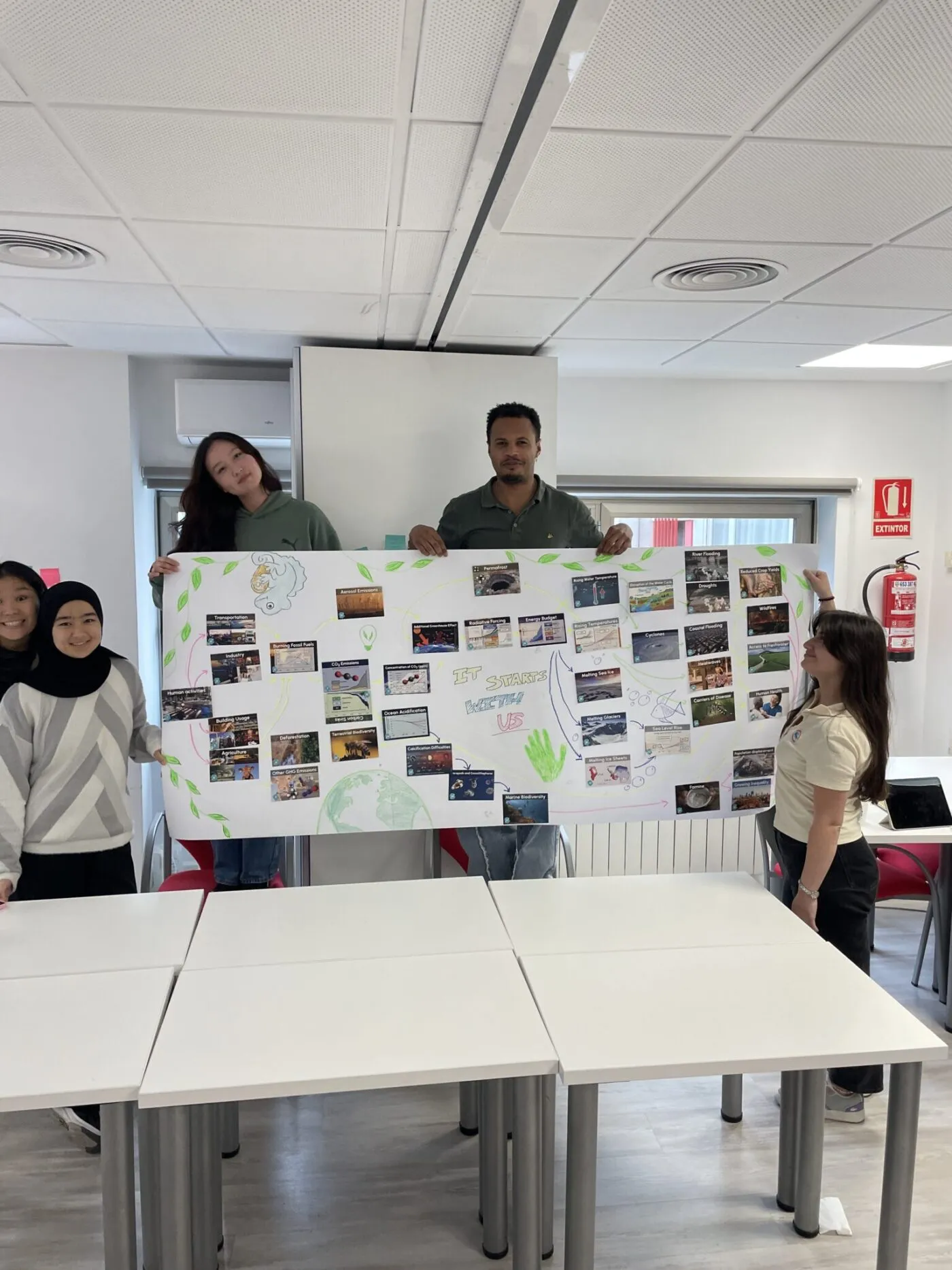
Projects: Turning Ideas into Action
Our projects took us from local to global:
- Developing a tourism business idea - an interesting project where we had the chance to apply our knowledge by creating a real business, planning its funds, pricing and marketing.
- Best Tourism Villages by UN Tourism – by conducting research and interviews we were mapping opportunities for rural development and had an amazing opportunity to communicate with representatives of the tourism sector from different continents.
- Creating a sustainable hotel brand - we created a sustainable hotel from scratch by defining the core concept, shaping the value we want to sell, and building a strong commercial and marketing message.
- Slovenia Destination Analysis - we were studying how Slovenia positions itself as a sustainable tourism leader.
- Presenting and Interacting – as our final group project, we created a promotional campaign for the launch of a luxury Conference Hotel, presenting it through a WordPress site and video.
- Debates – we held an interesting debate on the importance of international tourism organizations in the Global UN Tourism Missions & Initiatives class.
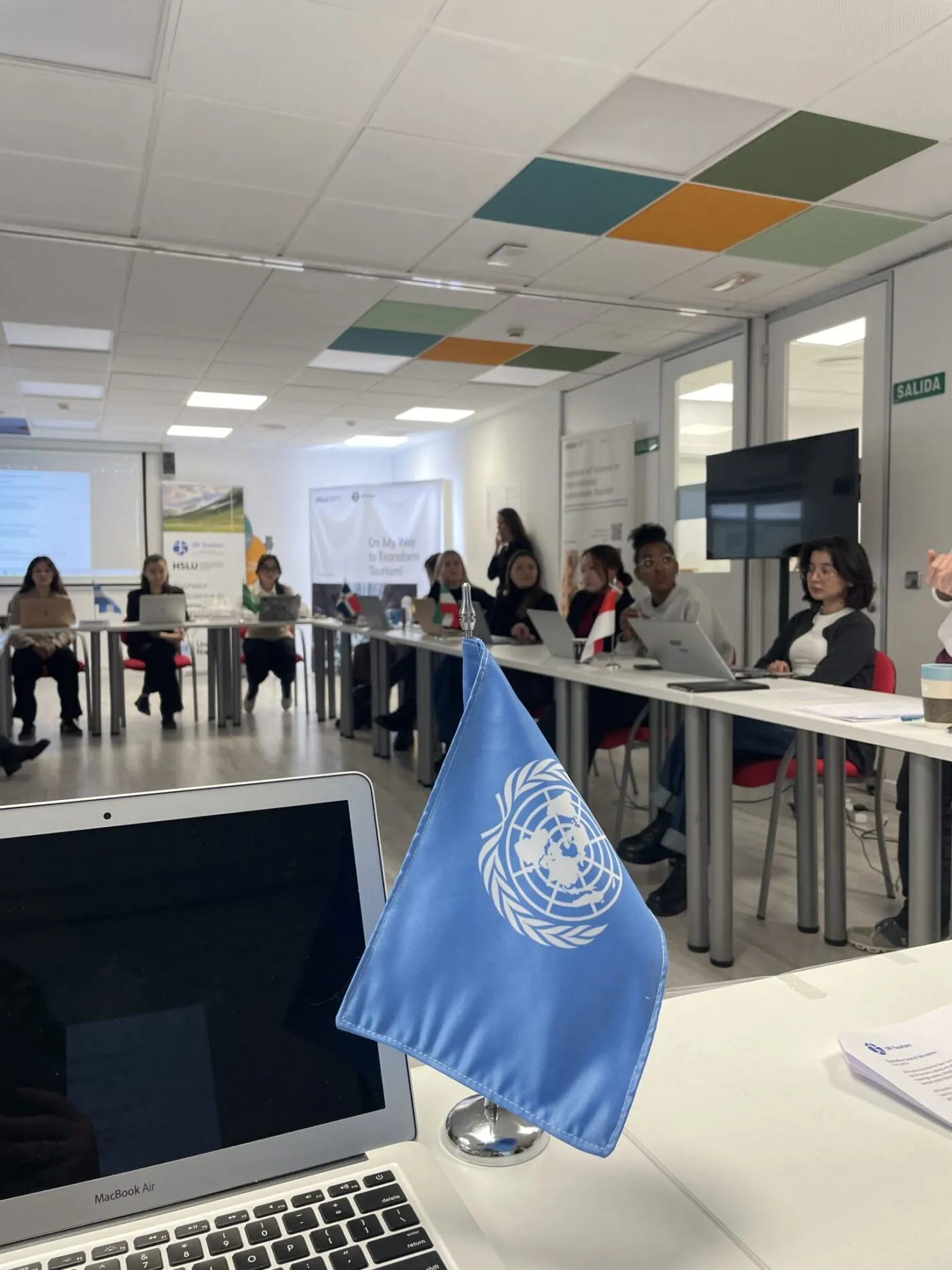
Guest Speakers & Interactive Sessions
Another exciting part of the programme has been hearing from guest speakers and joining interactive sessions:
- Experts from the United Nations on tourism and global policy.
- A session on cryptocurrency and tourism, exploring the digital future of travel.
- Inspiring talks on social responsibility from Nepal and Rutopía, a Mexican start-up empowering local communities.
- A motivating workshop on Growth Mindset with Prof. Dr. Martin Gubler.
- Lectures on inclusion and accessibility showed us that tourism is for everyone and highlighted the importance of creating equal opportunities and accessible environments for all.
- In ecosystem game workshops with Prof. Caro Degryse we identified ecological issues, explored the chain of ecology and developed calls to action – all as an interesting game.
- Plastic and Recycling – we explored how everyday products, especially plastics, impact our planet and the importance of recycling.
- We were learning about women’s roles and jobs in hospitality and the importance of equality and leadership in this industry.
- Several sessions were themed around the Sustainable Development Goals (SDGs), including inspiring guest talks on the mission and importance of the SDGs, which helped us see how tourism connects directly to global sustainability goals.
- A session on authenticity highlighted that tourism is not only about serving tourists, but also about preserving its true character by supporting locals and strengthening rural communities.
These sessions showed us how broad and dynamic the field of sustainable tourism really is.
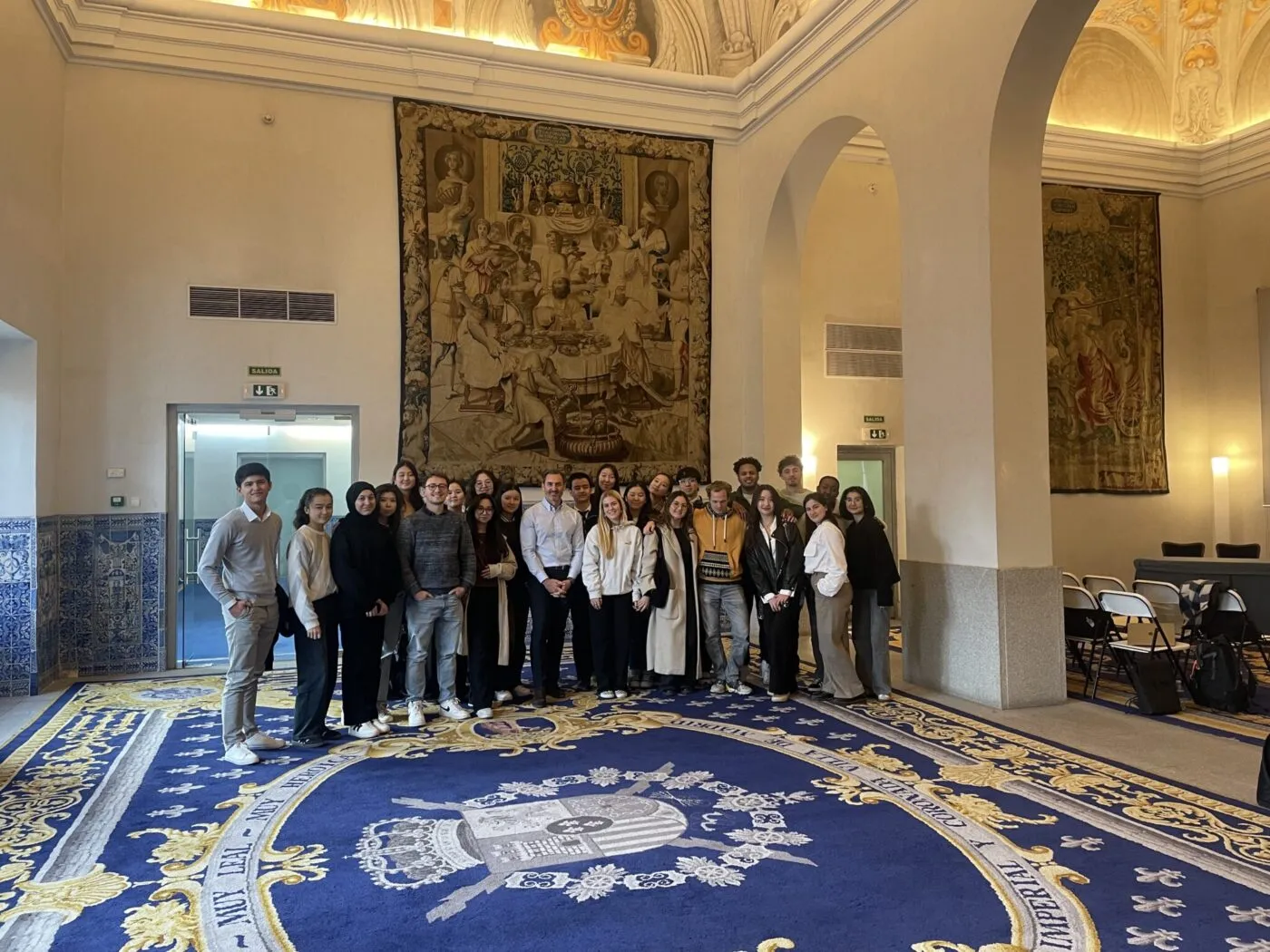
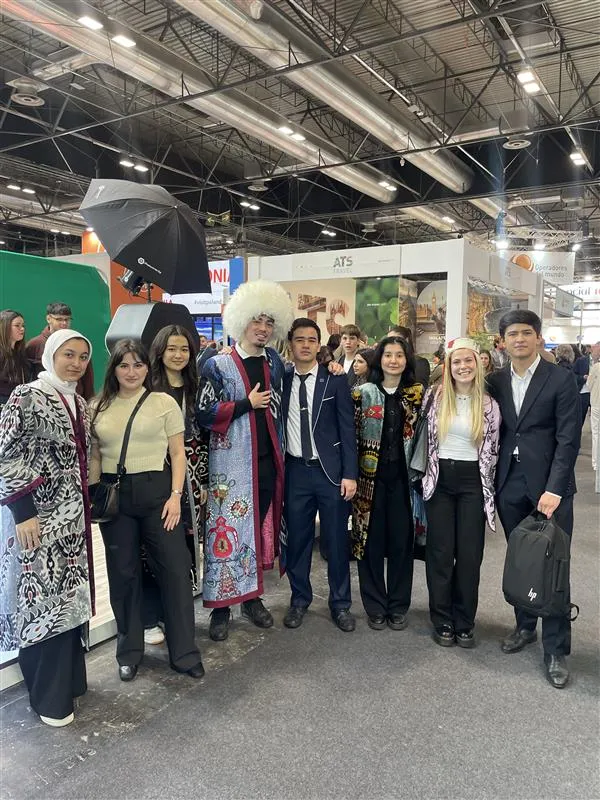
Case Studies: Global Perspectives
We have directly addressed global challenges using case studies:
- AirBnB
- Rural Tourism
- Green innovation in cruise tourism
- Greenwashing
- Recycling
- Food waste
- Overtourism in Barcelona
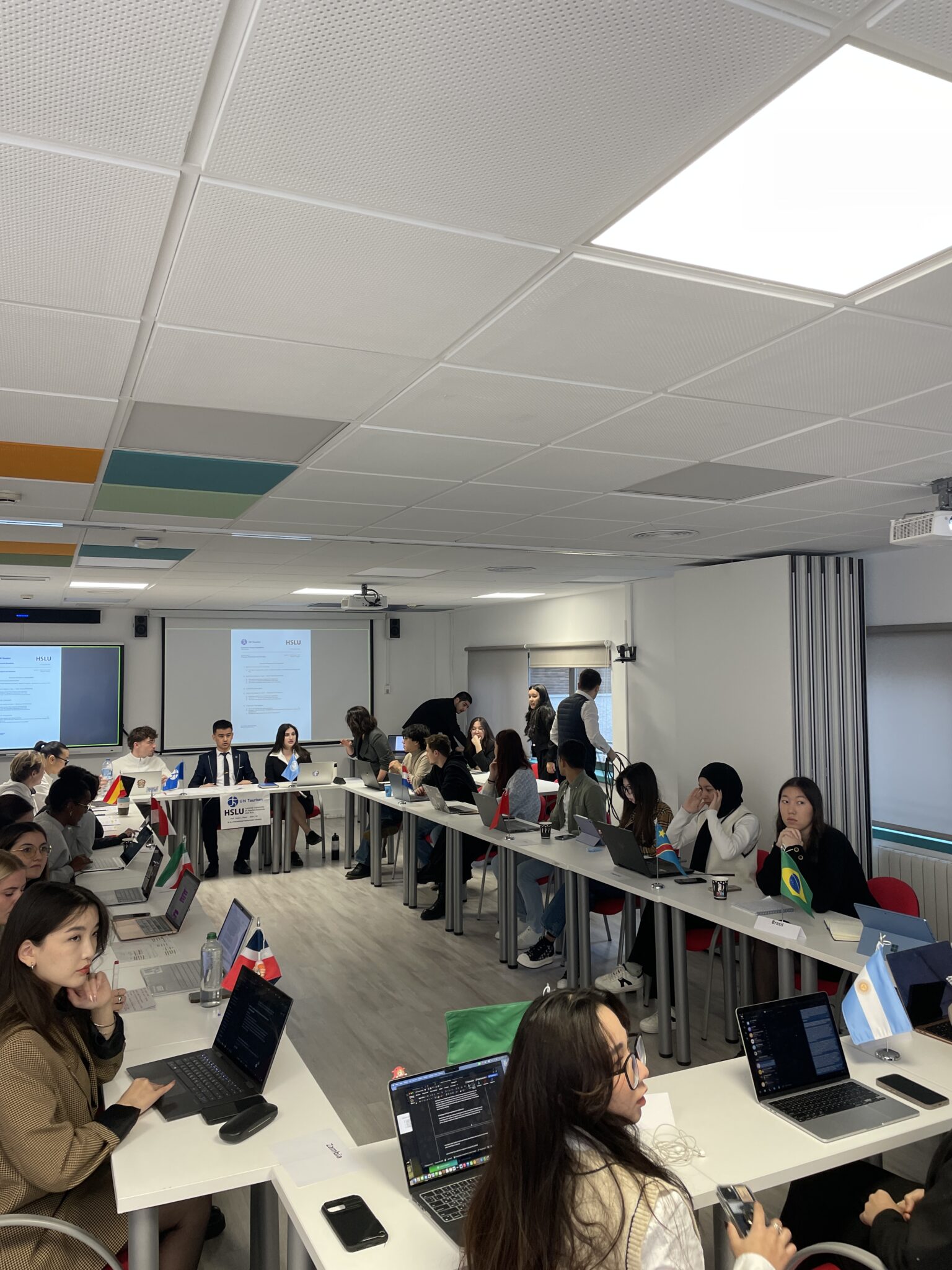
Simulating the UN Tourism Executive Council
One of the most unique experiences was stepping into the role of a UN Delegate during our UN Simulation in UN Diplomacy & Tourism. We all had roles such as the Chairman of the Executive Council, Secretariat Directors and Country Representatives. Debating on the Challenges of tourism and tourism’s role in international cooperation and drafting resolutions gave us a taste of how tourism is deeply connected to global diplomacy and governance.
Why It Matters?
All these experiences – field trips, projects, guest speakers, case studies and simulations – taught us that sustainable tourism is not just about protecting the environment. It’s about inclusion, fairness, culture, innovation and global cooperation.
For students like us, the IST programme makes sustainability real. We don’t just study it – we live it, practice it and learn how we can shape the future of tourism and business.
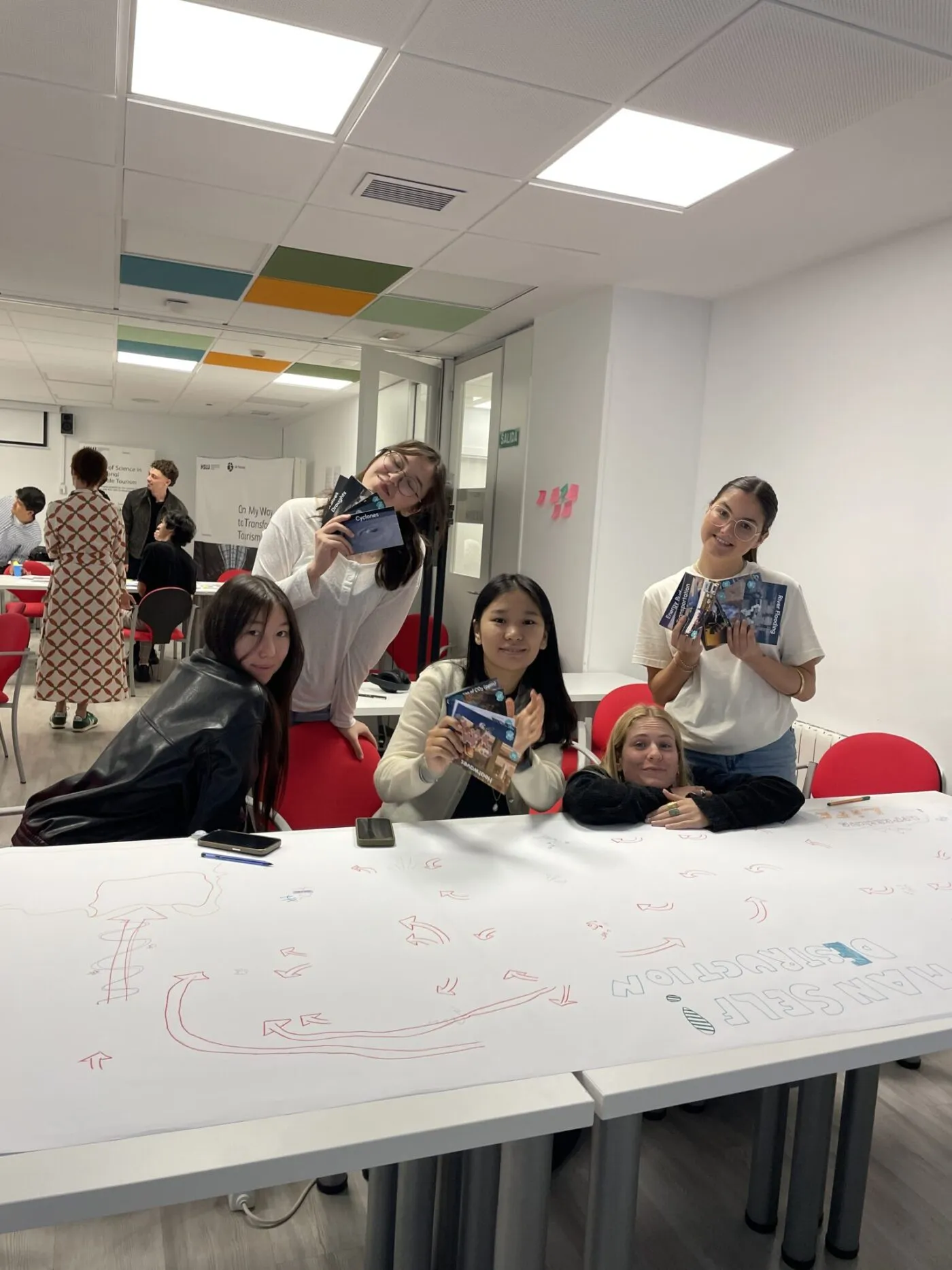
If you want to know more about our course and all the activities, visit our Instagram page where we share more insights.
See you soon in Madrid?